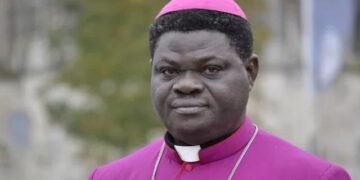By Charles Igwe
African bishops, united under the Symposium of Episcopal Conferences of Africa and Madagascar (SECAM), have issued a warning about the recent surge of coups on the continent, expressing concern that these power grabs could lead to a geopolitical shift reminiscent of the Cold War era, potentially endangering peace and development.
Gabon recently experienced a military takeover led by General Brice Oligui Ngeuma, overthrowing President Ali Bongo Ondimba, who had just secured a controversial re-election after 14 years in power. Similar coup events have unfolded in Niger, Burkina Faso, Mali, and Sudan. While these interventions were welcomed by jubilant crowds hoping for an end to corruption and autocracy, SECAM bishops have criticized these unconstitutional takeovers.
In a statement signed by Cardinal Fridolin Besungu Ambongo of Kinshasa, the current president of SECAM, the bishops condemned the seizure of power through force, emphasizing that it is unethical. They cited St. Pope John Paul II’s support for democracy, which ensures citizens’ participation in political choices and the accountability of those in power. The bishops expressed concern that coup leaders often fail to fulfill their promises, raising questions about the legitimacy and sustainability of such transitions.
The bishops also highlighted broader issues plaguing Africa, including social injustice, exploitation of natural resources by multinational corporations, and the potential alignment of new regimes with global powers. They warned that this alignment could resurrect Cold War-era tensions, with Africa becoming a battleground for rival powers, which could hinder the continent’s development and aspirations for self-reliance.
SECAM urged African countries to collaborate across borders to ensure continental stability, with the African Union facilitating resource and idea exchange among member states. They emphasized Africa’s potential for development, given its abundant natural resources, but stressed that economic colonialism and systemic challenges have hindered progress.
In conclusion, the bishops called for unity among African nations and the avoidance of ideological rigidity that could trap the continent in global power struggles, reaffirming that Africa has the means and talent to achieve its development goals.




















































